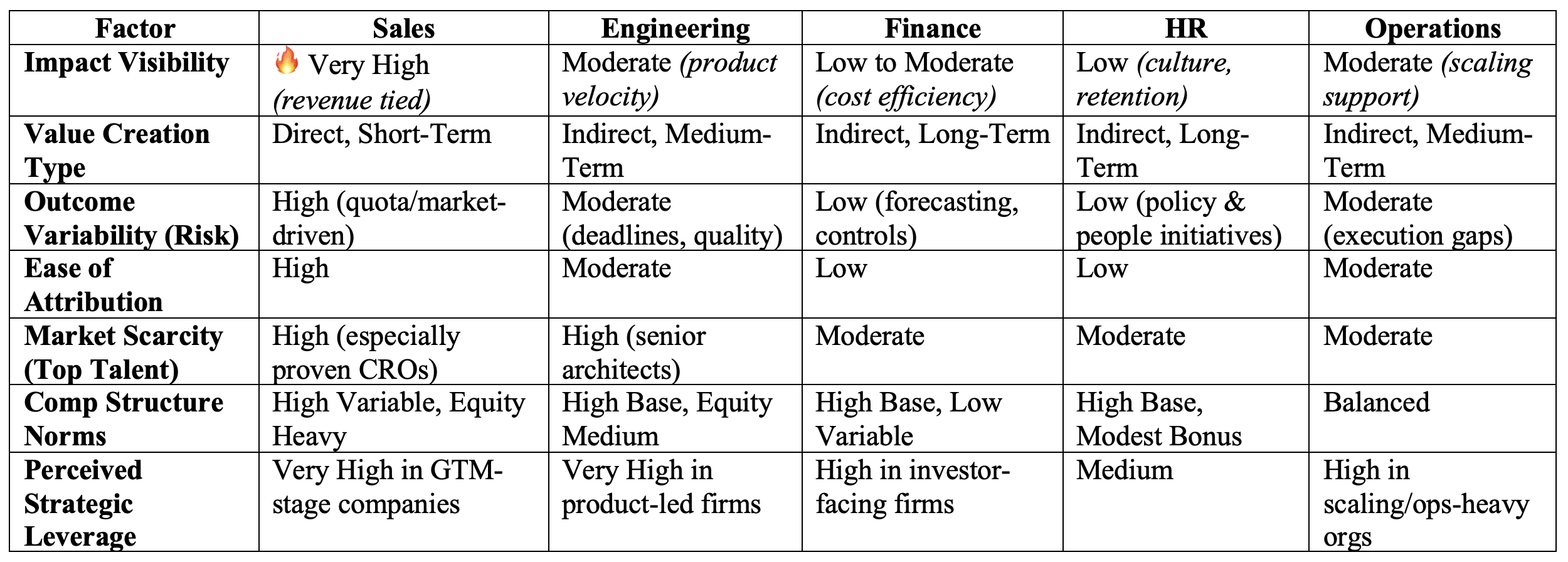How Are Executive Jobs Valued—and Why Sales Leadership Gets Compensated Differently
Executive compensation is shaped by a combination of market dynamics, perceived value creation, and the risk/reward trade-offs inherent to each role. Here's a closer look at how different leadership functions are valued—and why senior sales leaders often stand apart in terms of earnings potential.
Key Factors That Influence Executive Compensation
1. Value Creation: Direct vs. Indirect Impact
Sales leaders often have direct influence on revenue generation. Their performance is visible and quantifiable through metrics like bookings, pipeline conversion, and quota attainment. By contrast, other functions—such as HR, Finance, or Engineering—create value in more indirect or long-term ways. Their success unfolds over time and is harder to measure in immediate financial terms.
2. Risk and Outcome Variability
Sales executives operate in volatile, performance-driven environments. Their compensation reflects that variability—typically through high variable pay, commissions, or equity incentives. In contrast, Finance or HR roles are more stable and predictable, with comp packages skewing toward base salary and modest annual bonuses.
3. Market Demand and Talent Scarcity
Proven revenue leaders, especially those who have scaled startups or driven GTM success in complex markets, are in high demand. Their scarcity, and the outsized perceived impact they bring, often leads to premium compensation. Engineering leaders may command similar premiums in product-centric companies, while HR and Finance tend to follow more stable benchmarking curves.
4. Function-Specific Compensation Norms
Sales compensation is inherently performance-based. Engineering and finance follow more fixed models. These norms shape both expectations and perceived fairness, influencing how compensation is structured at the C-suite level.
5. Company Stage and Strategic Priorities
In early-stage or high-growth companies, unlocking revenue may be the top priority—making the sales leader the linchpin of short-term success. In later-stage or regulated businesses, finance, compliance, and operations leaders may carry more strategic weight.
Executive Compensation Comparison Matrix:
Final Thoughts
The compensation differences between functions aren’t about importance—they're about how value is created, how fast it shows up, and how risky it is to produce. Sales leaders are often paid more because they're expected to carry the weight of short-term revenue growth—and take the fall when it doesn’t happen.
That said, compensation should always reflect the full context: company stage, growth goals, and the interplay between all functions. The best-aligned exec teams recognize each other's value and design incentives that reflect both contribution and interdependence.

